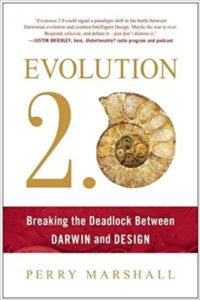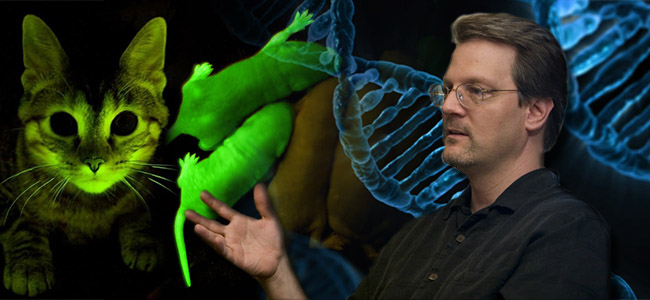Where did the code for life come from? It is time for a synthesis of Creation and Random Mutation. Life has a purpose. Mankind has begun to tinker with the genetic code. How long until we beg the question, what have we done!? How smart is a cell. What lengths will a cell go to protect its genome? Natural Genetic Engineering shows that life has a purpose and it is willing to fight to stay on course.
The Semmelweis Effect is entrenched norms stomping on discoveries with skepticism. At a time when we are creating glow in the dark animals and you can perform gene splicing from your kitchen, we need to open our minds to appreciate the unanswered questions. Will God be found in bacteria?
Darwinists underestimate nature. Creationists underestimate God. Nature is astonishingly more sophisticated than either side was telling us. And both sides were omitting the most tantalizing parts of the story. Darwinists were deliberately “dumbing down” the science to make living things look random, purposeless and accidental. Nothing could be further from the truth.
 Perry Marshall is an author, speaker, engineer and world-renowned business consultant in Chicago. With a decade of research, he brings a fresh perspective to the 150-year old evolution debate. Bill Gates of Microsoft and the founders of Google revolutionized software and the Internet through their status as outsiders. Similarly, Perry harnesses a communication engineer’s outsider’s perspective to reveal a century of unrecognized research and discoveries.
Perry Marshall is an author, speaker, engineer and world-renowned business consultant in Chicago. With a decade of research, he brings a fresh perspective to the 150-year old evolution debate. Bill Gates of Microsoft and the founders of Google revolutionized software and the Internet through their status as outsiders. Similarly, Perry harnesses a communication engineer’s outsider’s perspective to reveal a century of unrecognized research and discoveries.
Evolution 2.0 builds its case on standard, peer reviewed mainstream research. It resolves the conflict between Darwin and Design, opening new avenues of science research and raising tantalizing new questions. Perry’s work in digital communication networks, control systems, acoustics and e-commerce bring practical insight to questions about nature and science. His books include 80/20 Sales & Marketing, Ultimate Guide to Google AdWords, and Industrial Ethernet.
He has a degree in Electrical Engineering. He’s consulted in over 300 industries, from computer hardware and software to biotech and health care.




